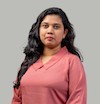By Sulochana Silva and Rashmi Anupama
Sri Lanka’s recent Value Added Tax (VAT) revisions have placed a heavier burden on lower-income households, who now spend 10% of their income on VAT. This tax burden, along with broader issues in taxation, welfare, and healthcare, was a central focus at the Institute of Policy Studies of Sri Lanka (IPS) flagship publication launch, Sri Lanka: State of the Economy 2024, under the theme ‘Economic Scars of Multiple Crises: From Data to Policy’. The opening session, ‘Distributional and Social Impacts: Who Gains, Who Loses?’ chaired by IPS Research Fellow Dr Ganga Tilakaratna, shed light on the uneven distribution of tax burdens, welfare shortfalls and healthcare access, sparking important discussions about how Sri Lanka can address these challenges.
Uneven Tax Burdens and Welfare Benefits
IPS Research Economist Priyanka Jayawardena highlighted how taxes and welfare programmes impact Sri Lankan households differently. "Sri Lanka’s richest households contribute nearly 95% of Pay-As-You-Earn (PAYE) and Personal Income Tax (PIT)," she explained, but also noted that tax evasion remains a problem. While PIT revenue for 2023 was estimated at LKR 131 billion, only LKR 48 billion appears to have been collected in 2023.
Jayawardena pointed out that VAT revisions – from 15% to 18% – along with removing exemptions have hit the poorest hardest, with the bottom 10% of households paying around 10% of their income in VAT compared to 6% for wealthier households. In contrast, excise taxes on alcohol and tobacco are more progressive, with wealthier households paying nearly half of all excise taxes. The wealthiest 20% pay nearly half of alcohol (43%) and tobacco taxes (44%), while the poorest 40% contribute less than 20% on both. Reforming VAT while increasing excise taxes was suggested to create a healthier and fairer tax system.
The discussion also touched on the imbalance in welfare benefits. Public service pensions (PSP), for instance, overwhelmingly favour wealthier households, with the top 20% receiving half of all pension benefits. "The bottom 40% only gets 11% of these benefits," Jayawardena noted, suggesting a gradual shift to a contributory pension scheme to reduce the fiscal burden and ensure long-term sustainability.
The Effectiveness of the Aswesuma Programme – A Lifeline, But with Gaps
IPS Research Economist Dr Pulasthi Amarasinghe gave insights into the effectiveness of the Aswesuma Programme. Introduced to replace the Samurdhi programme, Aswesuma uses 22 indicators across six dimensions to determine eligibility for cash transfers. While Aswesuma takes a holistic approach to poverty, there are clear gaps.
"According to a forthcoming IPS study, while the programme aims to improve the targeting of welfare benefits, only 53.51% of previous Samurdhi recipients are eligible for Aswesuma," Dr Amarasinghe said, noting that the programme should research previously unassisted groups. Notably, nearly 40% of food-insecure households are not eligible for Aswesuma benefits. He highlighted that many households, when faced with economic hardship, resort to negative food coping strategies, such as reducing meal sizes or eating less nutritious food.
The analysis suggests better targeting of vulnerable households by revisiting and changing the current criteria or incorporating additional indicators such as disaster preparedness. While a simulation analysis shows that the cash transfers would benefit the households in areas of food insecurity, it also warns of a potential decline in labour force participation among Aswesuma beneficiaries—7.1% for women and 16.6% for men.
During the Q&A session, participants discussed the need to incorporate indicators like food insecurity and nutrition sensitivity into welfare targeting. However, the challenges of quantification due to the diversity of nutrition remain. Dr Amarasinghe agreed, emphasising that despite the difficulties in quantification, simpler measures of food consumption or dietary changes, as used in other contexts related to multidimensional indices, can still be considered to assess the household’s nutrient sensitivity.
Another key point raised was the predicted decline in labour force participation due to the Aswesuma programme. Participants stressed that simply providing cash transfers is not enough—raising wages and creating more job opportunities are crucial to improving overall welfare.
Strengthening Healthcare Access and Financing
The final presentation by IPS Economist Sunimalee Madurawala shifted focus to the challenges facing Sri Lanka’s healthcare system. Though the country once prided itself on achieving remarkable health outcomes with minimal spending, recent crises have exposed significant weaknesses in the system. “Sri Lanka allocates only 8-9% of its total public spending to healthcare, far below the global average,” Madurawala revealed, noting that household healthcare costs have skyrocketed – rising by 48% within just one year from 2020 to 2021.
Access to primary healthcare has also declined – from 95% in 2019 to 82% in 2022/2023 at the national level, with rural areas hit the hardest. Rising healthcare costs are straining both wealthy and poor households, with the poorest bearing the brunt.
To combat these challenges, the analysis suggests the need to expand social health insurance, reduce out-of-pocket healthcare costs, and promote public-private partnerships. Lessons from countries like Thailand and Indonesia, which have implemented long-term health reforms, could provide a roadmap for Sri Lanka.
During the Q&A session, participants highlighted the importance of strengthening primary healthcare at the local level. While groundwork has been laid with support from organisations like the World Health Organisation and the Asian Development Bank, there are still significant gaps in training medical officers to implement these reforms effectively. The need for infrastructure development, particularly for telemedicine, was also emphasised, underlining the challenges of delivering healthcare in remote areas.
These findings underscore the urgent need for proactive policies that address inequality, improve welfare targeting, and strengthen healthcare access. As Sri Lanka navigates its economic recovery, it is essential to ensure that the most vulnerable groups are not left behind in creating a more equitable and healthier future.

Sulochana Silva is a Research Assistant at the Institute of Policy Studies of Sri Lanka (IPS). She holds a BSc (Hons) in Agricultural Technology and Management specialising in Applied Economics and Business Management from the University of Peradeniya. Her research interests are agriculture policies and institutions, environment and natural resource policies, food security and climate change.
.

Rashmi Anupama is a Research Assistant at the Institute of Policy Studies of Sri Lanka (IPS) with research interests in macroeconomics and international trade. She holds a BSc in Agriculture specialising in Agricultural Economics with a first class from the Rajarata University of Sri Lanka.
